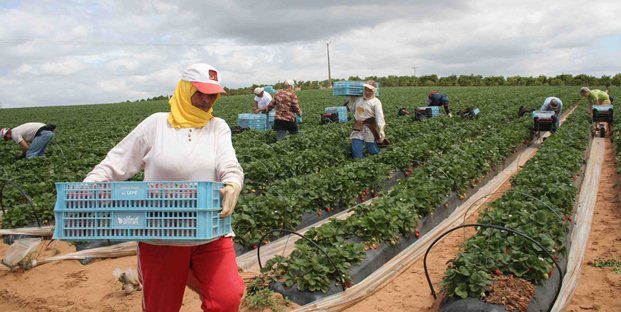
Rabat, Morocco (TMT)- The Minister of Agriculture in Morocco, Mohamed Sadiki, announced that the government is working on encouraging the cultivation of plants that can adapt to climate change, due to the worst drought crisis the country has experienced in over 40 years.
The Moroccan government is supporting the cultivation of crops that can resist climate change, such as carob trees, olives, argan trees, cacti, and almonds, in addition to developing and using genetically improved plant varieties that can withstand drought, especially those related to grains and fodder.
In recent months, the Ministry of Agriculture and Marine Fisheries has launched projects to expand the planting of carob trees in several regions of Morocco. The “Green Generation 2020-2030” plan, overseen by the ministry, aims to plant around 100,000 hectares of carob trees to increase national production.
The government is also seeking to ensure the availability of basic products such as potatoes, tomatoes, onions, and grains, despite the primary obstacle of water scarcity caused by drought.
The Moroccan authorities state that last season’s rainfall rate was the lowest in 41 years.
The country has experienced 20 drought seasons in the past 70 years and has faced challenges in managing water resources since 2001 due to a decrease in rainfall, an increase in temperatures, and excessive exploitation of groundwater.
Morocco is classified as one of the countries most at risk of severe water stress by 2040, and the agricultural sector is the largest water consumer with a demand rate of 87.3%.
The Moroccan government has approved a program to supply water for drinking and irrigation purposes between 2020 and 2027, with investments of 115 billion Moroccan dirhams.
Alongside the dam policy, Morocco has focused on desalination projects in recent years to enhance its water supply.
Morocco is witnessing a worrying decline in the annual water share per capita, which has fallen to less than 650 cubic meters per year, compared to 2,500 in 1960. The quantity is expected to drop to below 500 cubic meters by 2030, according to a previous report by the Economic and Social Council in Morocco.
The Moroccan Times.


